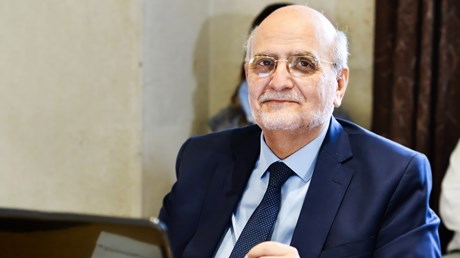New leader of Middle East Council of Churches says the quality of believers preserves their witness, if not their numbers.

Pope Francis will make the first papal visit ever to Iraq in March to encourage the dwindling faithful. War and terrorism have hemorrhaged the nation’s Christians, but he hopes they might return.
Meanwhile in Lebanon, Michel Abs, recently selected as the new leader of the Middle East Council of Churches (MECC), agrees with the pontiff. But in an interview with CT, he said that schools and hospitals have distinguished Christians, who he hopes might even increase in number—and quality.
And Protestants, he said, have a lever effect that raises the whole. Representing only 7 percent of the regional Christian population, they have a full one-quarter share in the council.
The MECC was founded in 1974 by the Protestant, Greek Orthodox, and Oriental Orthodox denominations. Catholics joined in 1990 to complete its diverse Christian mosaic.
According to the Pew Research Center’s 2010 Global Christianity report, Orthodox believers represent 65 percent of the Middle East’s Christians, with Catholics an additional 27 percent.
But it was the Protestants who helped give birth to the ecumenical movement that joined them together. The 1934 United Missionary Council became the Near East Christian Council in 1956, and the Near East Council of Churches in 1964.
It was renamed the Middle East Council of Churches when the Orthodox joined 10 years later. Today it includes Protestant church associations in Egypt, Syria, Lebanon, Jordan, Palestine, Sudan, Iran, Kuwait, Algeria, and Tunisia.
Council leadership rotates between the four denominations. Last September, Patriarch John X. Yazigi of the Greek Orthodox Church nominated Abs for the Eastern Orthodox four-year term. (Protestants are next in line.)
“Despite the difficulties ...
from Christianity Today Magazine
via


.gif)

.gif)
.gif)
